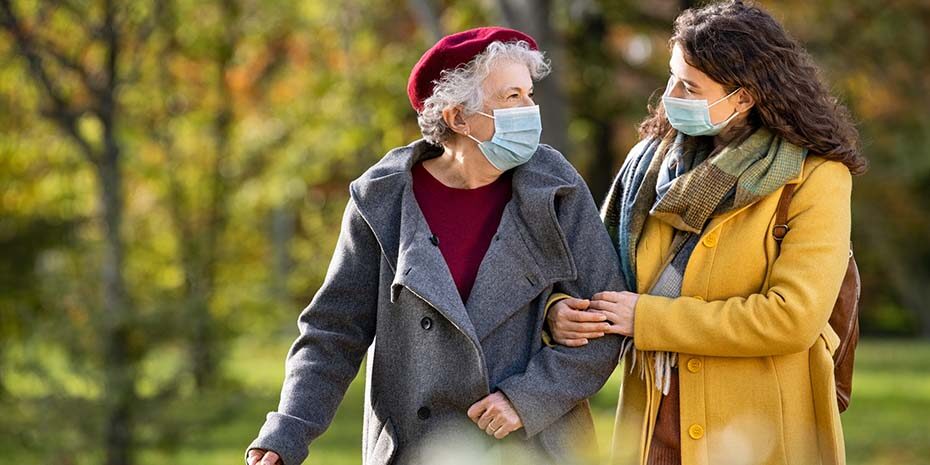
An aspect of COVID-19 that governments are looking at closely is the effect of the pandemic and associated public health measures on Australians’ mental health. The Sax Institute’s 45 and Up Study – a long-term project exploring healthy ageing in over a quarter of a million older men and women from New South Wales – is a unique resource for exploring a broad range of mental health issues in older people during these difficult times.
In 2020, around 60,000 Study participants completed questionnaires related to COVID-19, including its impact on mental health. Around 32,000 of these signed up to a series of five COVID Insights surveys which continued through to earlier this year, making this one of the largest COVID-19 studies in Australia. The surveys offer a snapshot of health and wellbeing during the pandemic including people’s mental health, offering invaluable data to help government agencies and decision makers best calibrate policies to actual needs.
The fifth and last of these surveys was completed in April 2022, several months after the Omicron variant had been first detected and restrictions had begun easing across NSW. It provides a fascinating insight into people’s quality of life during the pandemic, the prevalence of psychological distress and loneliness, resilience, trauma and general mental health.
An important finding in this latest survey was that an increasing number of people reported worse health due to the pandemic. While only 32% of people felt their mental health had worsened as a result of the pandemic in the late 2021 survey, by March 2022, that figure had risen to 44%. More women reported worse mental health than men (50% vs 36%). But the good news is that the vast majority of people (95%) nonetheless reported good-to-excellent quality of life, roughly in line with what had been reported in the early days of the pandemic.
Loneliness among respondents was an issue, with 48% experiencing some level of loneliness and 11% experiencing intense loneliness. The figures for people with a disability were even higher, with 65% experiencing some level of loneliness and 24% intensely lonely. People with disability were also much less likely to report a good-to-excellent quality of life (75%).
The survey found that for those who had had COVID-19, most (81%) found isolating at home relatively easy. But for those who found it a challenge, around a third said this was because of feeling lonely.
Supported by a grant from NSW Health, these surveys have been co-designed with policy stakeholders to address important information gaps and priorities. In addition to mental health, they explore a range of themes including COVID-19 symptoms, infections and testing; telehealth and missed or delayed healthcare; lifestyle issues and general health status. Data from the surveys are available for researchers and policymakers to support the decision-making process.





